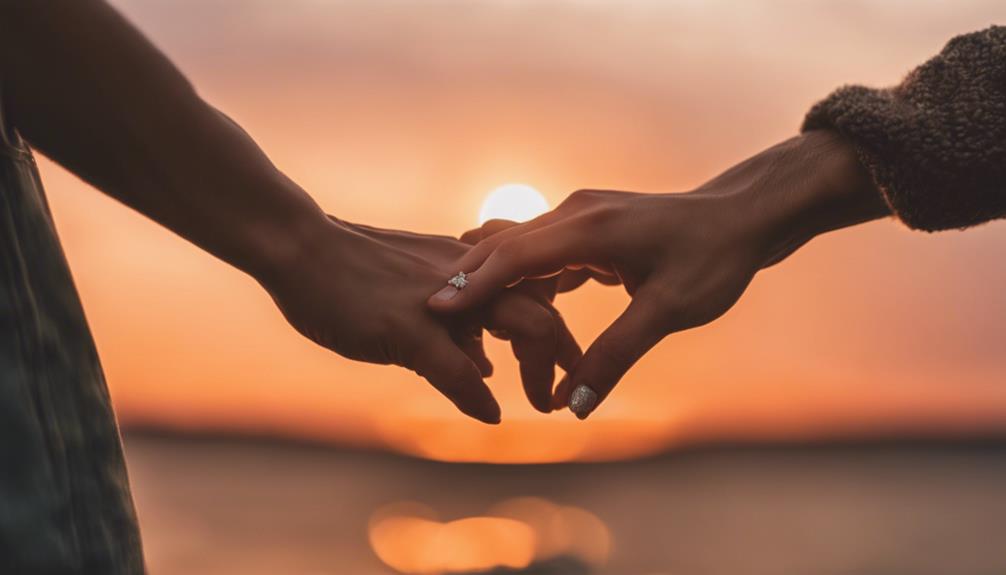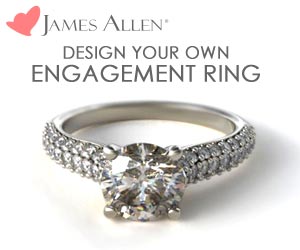You can absolutely skip the engagement ring and still have a meaningful commitment. Historically, engagement rings weren’t always the norm and their popularity skyrocketed mainly due to clever marketing. Today, they often cause financial stress, averaging over $6,000. More couples are choosing personalized alternatives like tattoos, handcrafted jewelry, or memorable experiences. With evolving societal norms, the emphasis is now on love and commitment rather than traditional symbols. If you focus on what truly represents your unique relationship, you’ll find plenty of meaningful options to explore.
Historical Context
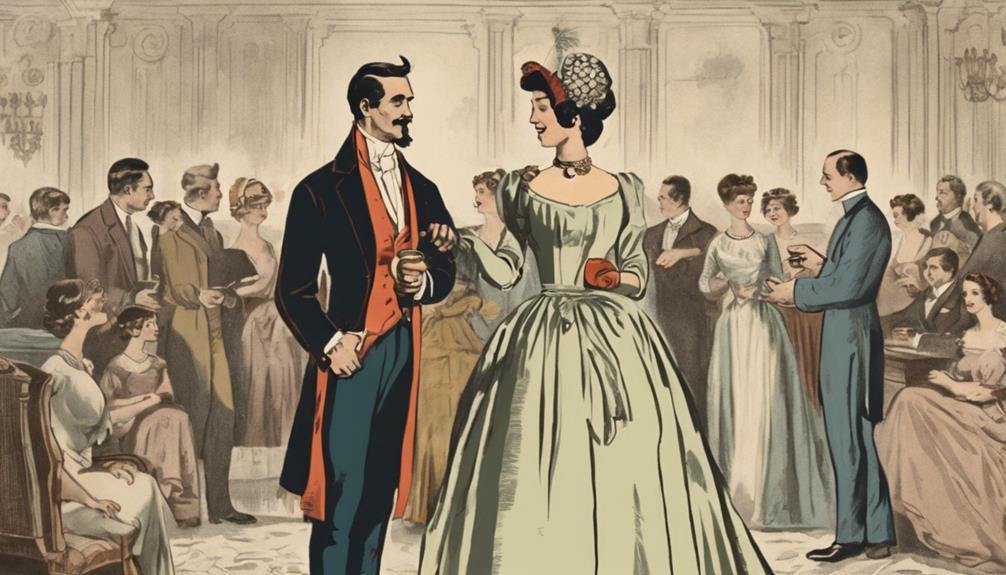
The tradition of engagement rings, deeply rooted in history, gained significant traction in the 19th century. This custom was prominently influenced by Archduke Maximilian of Austria in 1477, who presented the first recorded diamond engagement ring.
However, it wasn’t until the 1930s that diamond engagement rings truly became popular, thanks to a clever marketing campaign by De Beers. They positioned diamonds as the ultimate symbols of love and commitment, fundamentally altering historical perceptions surrounding engagement rings.
Before the 20th century, engagement rings weren’t widespread. Marriage promises often relied on other forms of collateral rather than jewelry. The shift began with De Beers’ introduction of the slogan “A Diamond Is Forever” in 1947, which solidified the cultural association between diamonds and eternal love.
This marketing strategy played a pivotal role in making diamond engagement rings a norm in wedding ceremonies.
Over time, engagement rings evolved from mere status symbols to representations of romantic commitment. This evolution was driven by societal norms and effective advertising.
Understanding this historical context can help you appreciate why many couples today are re-evaluating the necessity of traditional engagement rings in their commitments.
Financial Considerations
For many couples, the hefty price tag of an engagement ring, averaging around $6,163 in 2016, is a formidable financial commitment. This substantial cost often leads to financial stress, especially if you’re already dealing with budget constraints.
Instead of splurging on an expensive engagement ring, you might prefer allocating those funds towards practical expenses like your wedding, bills, or investments.
The true commitment in a relationship isn’t defined by an extravagant piece of jewelry. The essence of your bond lies in your mutual love and understanding. Many individuals now see engagement rings as unnecessary luxury items, given that their value doesn’t compare to the strength of the relationship itself.
As financial priorities evolve, so do the symbols of engagement. You might consider alternative symbols that reflect your unique relationship without causing financial strain.
Personalized gifts, meaningful experiences, or custom wedding bands can serve as beautiful, less costly expressions of your commitment. By focusing on what truly matters, you can avoid the financial stress linked with traditional engagement rings and embrace a more practical approach to celebrating your love.
Modern Alternatives
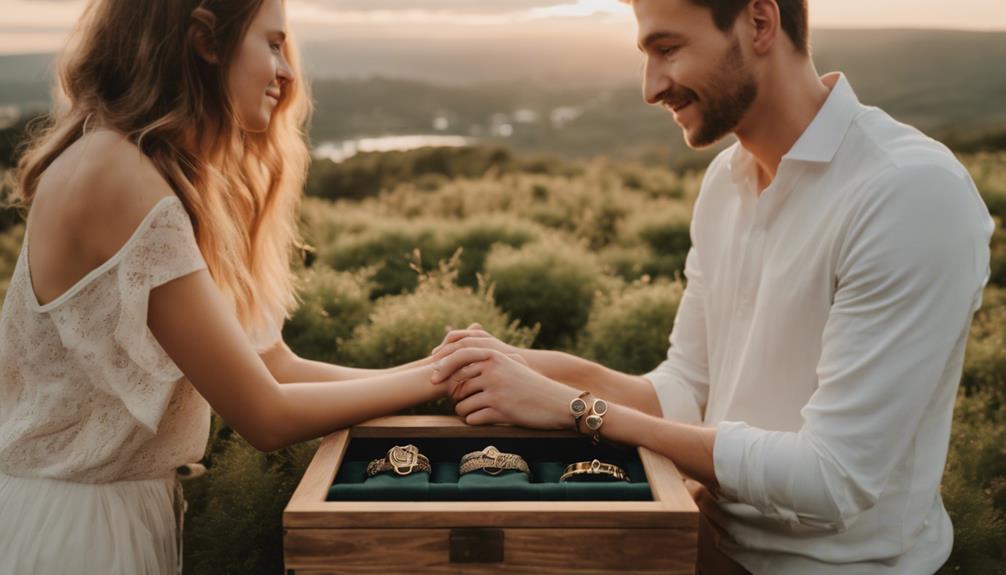
Modern couples are redefining engagement traditions by embracing alternatives that better align with their values and finances. Non-diamond engagement options, like tattoos, are becoming a popular choice for those seeking a lasting symbol of commitment without the hefty price tag. These permanent designs can be uniquely tailored to your relationship, serving as a meaningful, yet unconventional, alternative to rings.
Custom-made items are another fantastic way to break free from traditional norms. Handcrafted jewelry or personalized gifts allow you to showcase your unique love story, making the engagement even more special. Imagine a piece of jewelry designed specifically for you, reflecting your journey and individuality.
Lab-created diamonds and alternative gemstones offer budget-friendly options that mimic the beauty of traditional diamonds. These choices not only save you money but also align with eco-conscious values, making them increasingly appealing in modern wedding planning.
Instead of spending on a ring, many couples decide to invest in experiences, such as travel or shared adventures. These moments create lasting memories and deepen your bond in ways a ring never could.
Personal Preferences
When it comes to symbols of commitment, many individuals are steering away from conventional engagement rings in favor of options that better reflect their personal values and experiences. You might find that your personal preferences lean towards non-traditional symbols, such as tattoos or personalized gifts, which can uniquely capture your commitment.
These choices allow you to express your unique values and lifestyle choices, rather than adhering to the norm. Custom-made rings or alternative materials, like colored stones or lab-created diamonds, offer the chance to showcase your personal style. They provide a way to honor your commitment without being confined to traditional expectations.
For some, prioritizing experiences like travel or shared activities over spending on an engagement ring aligns their financial choices with their relationship goals. The rise of cohabitation and evolving relationship dynamics also play a part. Many now view commitment as a partnership that doesn’t necessarily require an engagement ring as its symbol.
Practical considerations, such as profession-related jewelry restrictions or a preference for simpler designs, further influence personal preferences. In the end, your commitment should resonate with your values and lifestyle, making the symbol you choose deeply personal and meaningful.
Societal Shifts
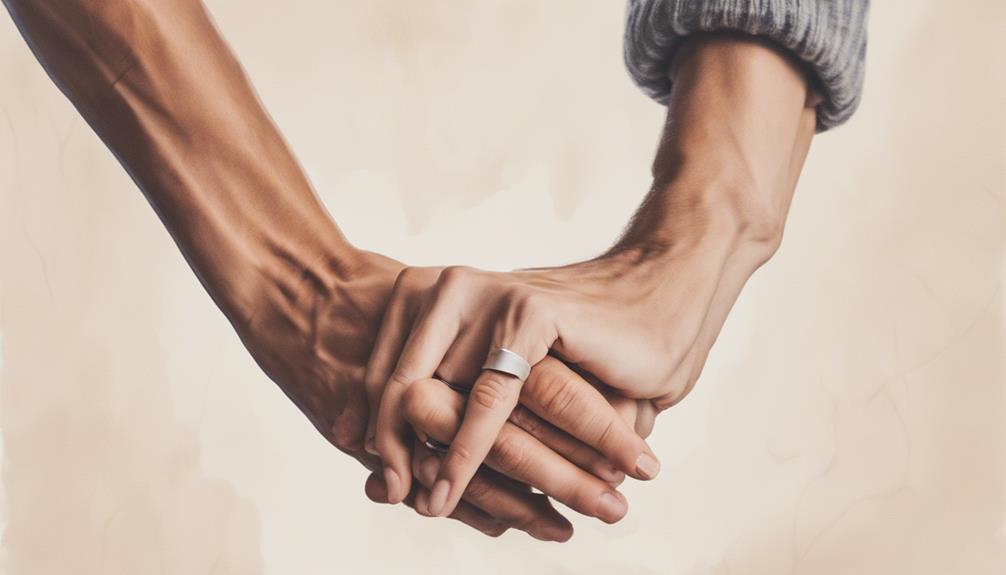
As societal norms evolve, the expectation of engagement rings is rapidly changing. More and more couples are choosing to skip the engagement ring altogether in favor of alternatives that better align with their values and financial priorities.
The rising cost of traditional rings—often averaging over $6,000—has led many to reconsider whether this expense is necessary. Instead, some couples opt for custom wedding bands or even tattoos as symbols of their commitment, emphasizing personal expression over tradition.
The shift in societal norms is particularly evident in same-sex marriages, where personalized approaches to commitment often take precedence over conventional jewelry. For many, living together is seen as a stronger commitment than presenting an engagement ring.
In fact, cohabitation among U.S. adults has increased by a third since 2007, reflecting a broader acceptance of non-traditional relationship milestones.
Financial practicality also plays a significant role. Couples are increasingly choosing to allocate funds towards more immediate needs, such as weddings or travel, rather than splurging on engagement rings.
This trend highlights a growing cultural movement towards valuing personal choices and meaningful experiences over adhering to traditional material symbols.
Conclusion
Ultimately, you don’t need an engagement ring to validate your commitment. By considering historical context, financial aspects, modern alternatives, and personal preferences, you’re embracing a more personalized approach. Society’s evolving norms, especially in same-sex marriages, back your choice to skip the traditional ring. Your commitment can shine just as brightly through thoughtful alternatives like custom bands, meaningful tattoos, or simply cohabitation. Your love story is unique, and it’s up to you to define it.

